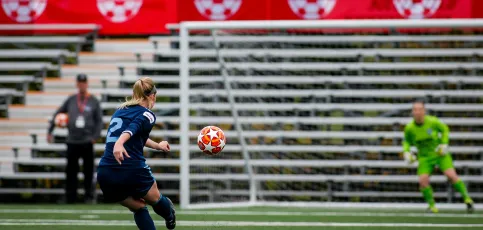
Most sports enthusiasts who follow team sports have probably at some point held their breath or looked away when the heads of two players collide in the heat of the moment, leaving both lying motionless. In recent years stories have emerged in the media about athletes struggling with long-term illnesses or symptoms following head injuries. But what are the effects of head injuries; especially concussion, on the health of those who experience them? A group of female scientists at the University of Iceland, Reykjavík University, and Landspítali University Hospital have been tackling this question in recent years, examining the specific effects of concussion on female athletes. Much evidence suggests that women may be more susceptible to the effects of concussion than men, but they have been less studied. The group has now produced short educational videos on the effects of concussions and head injuries on the body, as well as their research findings.
"The spark for the study is primarily our researchers' interest in sports and the fact that athletes often experience long-term symptoms following head injuries, or concussions in their sport, sometimes even having to quit sports altogether. Another significant concern is the effects of concussion on the hormonal function of the pituitary gland. It is thus important to identify factors that can be treated to shorten the progress of the situation and even heal it," says Helga Ágústa Sigurjónsdóttir, clinical professor at the University of Iceland and Landspítali University Hospital, and specialist in Internal Medicine and Endocrinology and metabolism.





